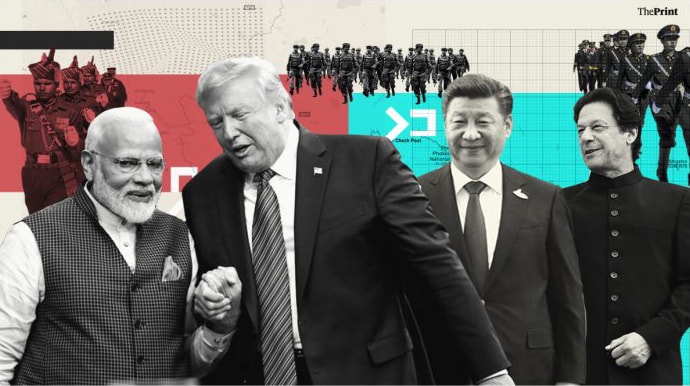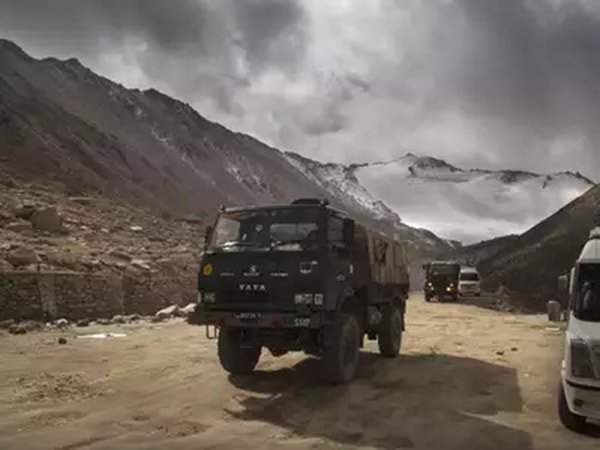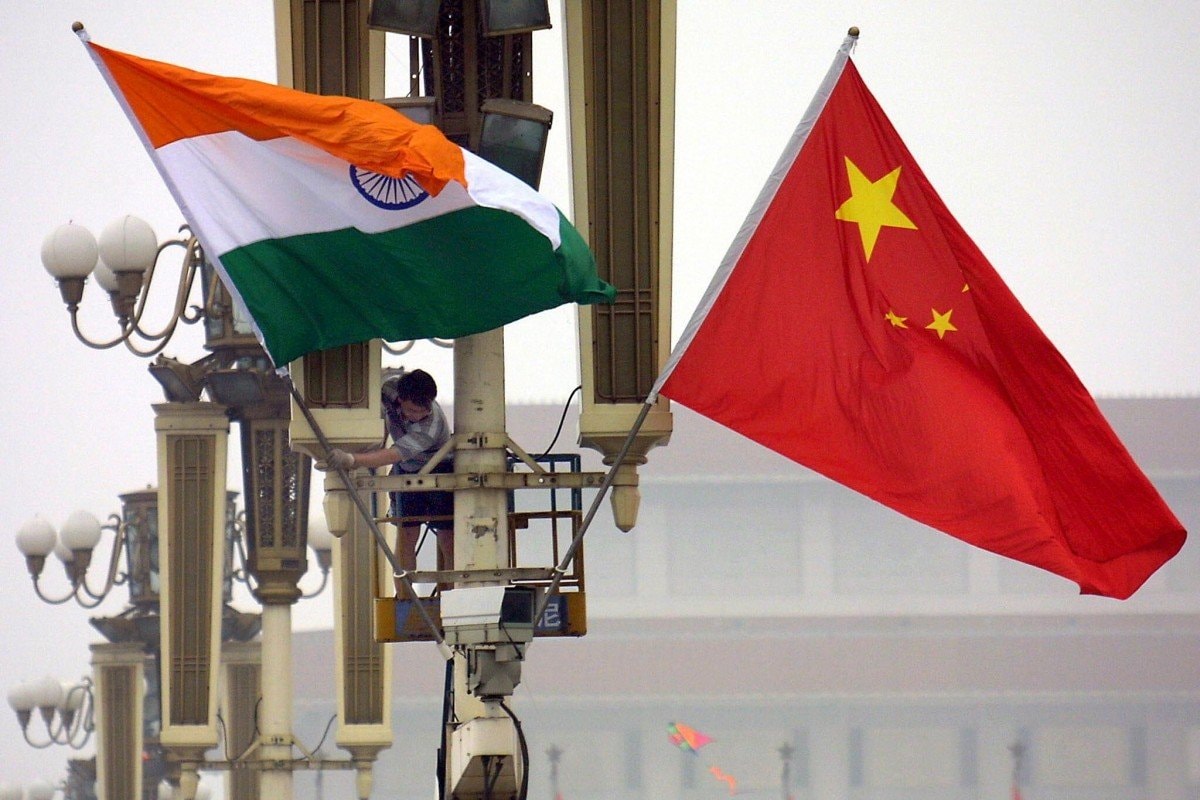India 'dismisses' US from border dispute issue
(Baonghean) - After deploying heavy weapons to the disputed border area with China, India has just announced that it will hold an important dialogue on June 6 to resolve the situation. This announcement is India's affirmation of resolving the border dispute through bilateral dialogue without the need for the US to mediate as proposed by President Donald Trump - a move that demonstrates India's caution in the triangle of relations with the US and China.
Behind the US proposal
When US President Donald Trump offered to mediate the dangerous border standoff between India and China, he tried to address both sides in a balanced way, saying that the US was ready and willing to arbitrate the dispute between the two sides.
However, few believe that if the US is accepted to play the role of “mediator”, it can maintain a balanced position. Donald Trump’s proposal to act as a mediator is aimed at building the image of a great power in handling international issues, on the other hand, to ease recent concerns about the US’s willingness to pursue an “America First” policy that would harm relations with its allies.
Of course, between China and India, it is not difficult to see which country is the US ally. Since the Sino-Indian border dispute broke out nearly a month ago, the US has reminded India to be vigilant against what the US considers “aggressive” moves in the border area.
Meanwhile, the US itself has had an extremely tense relationship with China for a long time, from trade, technology, security, and most recently, the way it handles the Covid-19 pandemic. Therefore, the US's proposal to act as a mediator can be implicitly understood as support for India.
 |
| India rejects US in handling border dispute with China. Photo: The Print |
The US has good reasons to choose to side with India. India is currently one of the US’s closest non-NATO allies, a “peak” of the “Diamond Quad” including the US, India, Japan and Australia – an important alliance that Donald Trump is building in the Indo-Pacific region. India’s role for the US is very important both politically and economically, contributing significantly to establishing a new situation in the region to contain China’s ambitions.
It is important to note that the policy in the Indo-Pacific region is one of the few policies of Mr. Donald Trump that has received broad consensus in the national security community, including both Republicans and Democrats, and is even considered the most important in US foreign policy. Although Mr. Donald Trump sometimes makes statements that bring a sense of skepticism and uncertainty to allies, the entire US security apparatus with important strategic documents affirms the US commitment to the region, in which India is an extremely important link, especially in terms of security.
In fact, cooperation between the US and India is still being maintained very closely. During US President Donald Trump's visit to India earlier this year, the leaders of the two countries pledged to strengthen the comprehensive strategic partnership, based on mutual trust, common interests, goodwill and consensus of the people of the two countries.
Although some trade issues remain unresolved, security cooperation is enough to demonstrate the close alliance between the US and India.
 |
| India and China have both deployed heavy weapons to the disputed border area. Photo: Time of India |
The Trump administration also amended the arms export control law to include India in the list of priority countries, considering India as a key ally not belonging to the North Atlantic Treaty Organization (NATO).
International public opinion is also particularly interested in the recent joint establishment of a $500 million medical relief fund by the US and India to support poor countries in dealing with the Covid-19 pandemic. This move is considered to create a counterweight to China as it promotes “medical diplomacy” and builds the image of a “sponsor” by providing medical supplies and equipment to many countries during the pandemic.
India's Caution
Although India has been actively participating in US initiatives in the region, in the border dispute with China, India has been resolute in "rejecting" the role of the US, despite Donald Trump's enthusiasm.
Analysts say that choosing to resolve the border dispute with China through bilateral negotiations shows India's caution in the relationship between the US and China. Many opinions within the Indian Prime Minister's administration are skeptical about the thoroughness and certainty in Donald Trump's offer to mediate.
Because, Donald Trump is still known as an impulsive leader, ready to post any issue on Twitter, like the way he made the proposal to China and India. Making the proposal does not mean that he has studied carefully enough about the complexities of the border issue between China and India.
In addition, the territorial border issue between the two powers India and China is one of the longest and most complicated disputes in Asia. However, the two countries have signed four agreements to create a border management mechanism, build trust between the two sides as well as a framework for bilateral negotiations and avoid the risk of war in the border area.
Leaving aside the border dispute, India and China still have close cooperation in many areas, especially in the field of trade. Being both a big country and a neighbor sharing a border, China is certainly still India's top foreign policy priority.
 |
| Despite border tensions, India and China maintain partnerships in many areas. Photo: AFP |
With two-way trade of more than 70 billion USD and huge investment prospects from China, India is still forced to skillfully handle the relationship between the US and China, choosing to handle the border issue through bilateral mechanisms instead of "joining hands" with the US.
Analysts also believe that the rejection of the US proposal also demonstrates India's autonomy and strength in handling thorny national issues. Because the way to handle the border dispute between China and India is not simply to resolve the historical issue between the two sides, but also a way for India and China to demonstrate their position in the competition for the role of a major power in the region.
Although the move by India and China to mobilize heavy weapons to the disputed border area has raised international concerns about the possibility of war, up to this point, both India and China have declared that the situation is still under control.
Whether the upcoming Sino-Indian dialogue on June 6 can defuse the “war fuse” or not, it is still the final decision of the “insiders” without any room for US involvement. Like many other neighboring countries of China, India is still forced to maintain a complex balance in its relationship with China, to both build cooperative relationships that benefit both sides and resolutely protect its independence and territorial sovereignty.

